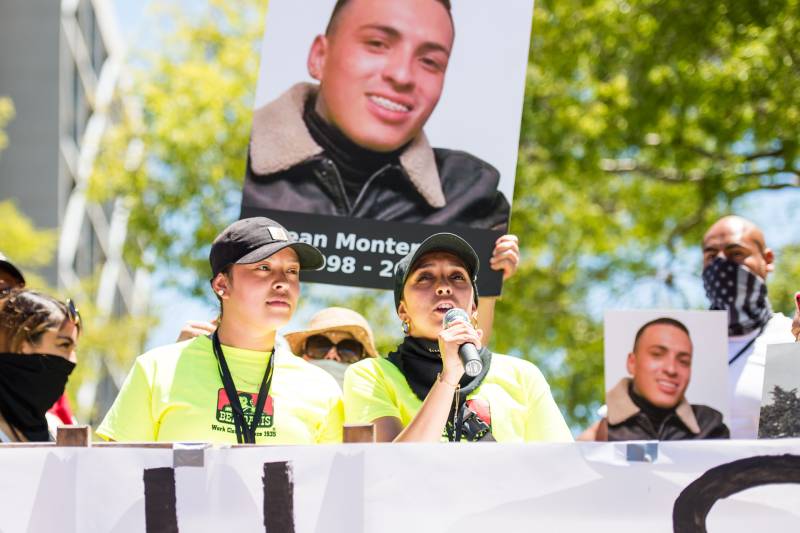California Attorney General Rob Bonta is not charging the Vallejo police officer who shot and killed Sean Monterrosa three years ago, Bonta’s office announced Tuesday afternoon.
Officer Jarrett Tonn fatally shot Monterossa in June 2020 in a Walgreens parking lot. The 22-year-old’s death shook the Bay Area and amplified protests against police brutality happening that summer after a Minneapolis police officer killed George Floyd.

